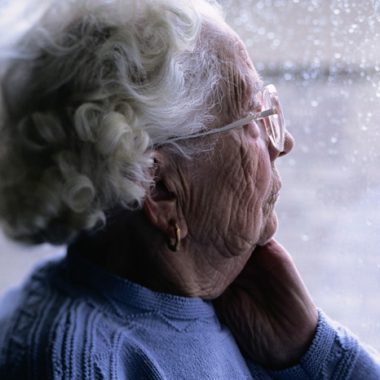Brief cognitive assessment methods used by GPs often give false-positive or false-negative results, researchers have warned.
Researchers from the UK and the US reviewed methods aimed at helping doctors to spot dementia, including the commonly used Memory Impairment Screen (MIS) test, finding they had a variety of biases.
The study, led by researchers from the University of Exeter, University of Edinburgh and University of Michigan, included just over 800 older patients based in the US. Of these, 35% had dementia and 65% did not.
The researchers put the subjects through three different type of cognitive test: the MIS, the Mini Mental State Examination (MMSE) and the animal naming (AN) test.
Misclassification by at least one assessment occurred in 301 (35.7%) cases, 113 (13.4%) were misclassified by two or more, and 14 (1.7%) were misclassified by all three. Overall dementia misclassification rates for the MMSE, MIS and AN, were 21%, 16% and 14% respectively.
The tests all had different biases, with the MMSE more likely to misclassify African-American patients and patients with lower education levels; the MIS more likely to misclassify patients with older age, visual impairments or depression; and the AN test more likely to misclassify patients without hyperlidaemia.
The paper said: ‘Dementia is often misclassified when using brief cognitive assessments, due to a wide range of test specific biases. The only consistent predictor of overall misclassification across all assessments was absence of informant-rated poor memory.
‘Brief cognitive assessments should therefore take into account both informant-rated cognition and multiple test specific biases in order to improve overall accuracy and clinical decision making.’
In the UK, NICE currently recommends that GPs use a ‘validated brief cognitive instrument’ to screen for dementia, such as the MIS test.
However, although GPs oversee the initial referral, patients tend to receive their dementia diagnosis from a memory clinic.
Neurol Clin Pract 2018; available online 28th November
NICE guidance on dementia diagnosis
- 1.2.1. At the initial assessment take a history (including cognitive, behavioural and psychological symptoms, and the impact symptoms have on their daily life) from the person with suspected dementia and, if possible, from someone who knows the person well (such as a family member).
- 1.2.2. If dementia is still suspected after initial assessment:
- conduct a physical examination and
- undertake appropriate blood and urine tests to exclude reversible causes of cognitive decline and
- use cognitive testing.
- 1.2.3. When using cognitive testing, use a validated brief structured cognitive instrument such as:
- the 10-point cognitive screener (10-CS)
- the 6-item cognitive impairment test (6CIT)
- the 6-item screener
- the Memory Impairment Screen (MIS)
- the Mini-Cog
- Test Your Memory (TYM).
- 1.2.4. Do not rule out dementia solely because the person has a normal score on a cognitive instrument.
Source: NICE
Pulse October survey
Take our July 2025 survey to potentially win £1.000 worth of tokens
















